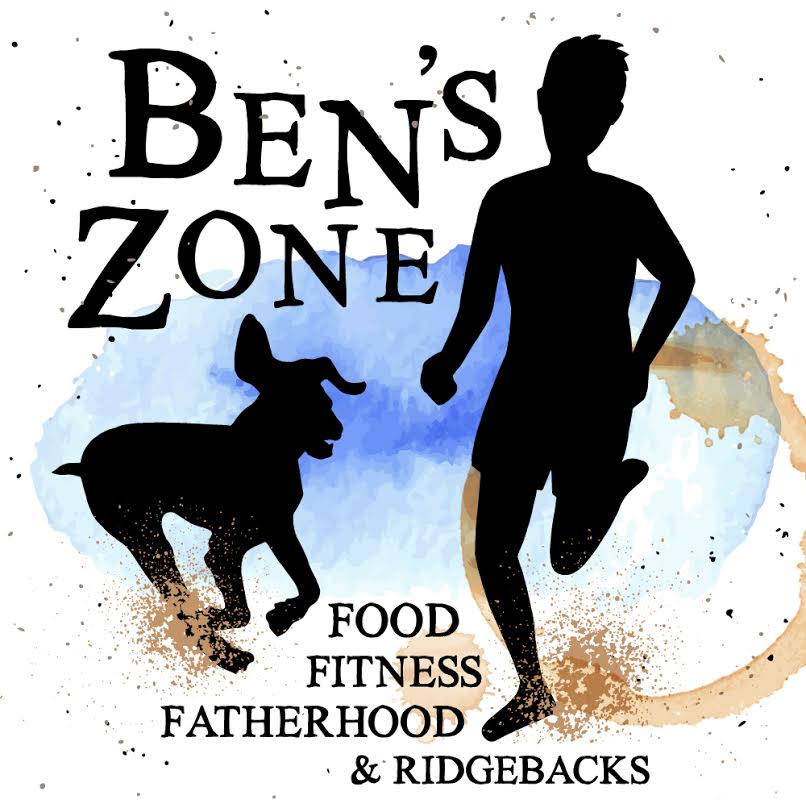
Welcome to a weekly feature on my blog – Ben’s Zone. Written by husband… Ben. A foodie, coffee obsessed, ex-smoking, ex-drinking and Ridgeback loving Dad. Who is also seriously into his fitness. You can find him on the blog (mostly) on Sundays. Enjoy!
5 Tips if you’re Thinking of Getting a New Dog or Puppy
Lockdown has been a lonely experience for a lot of people and, quite understandably people are looking for company. It’s no secret that one of the best forms of company you can find is the relationship you can develop with a dog, they’re called man’s best friend for a reason. That being said dogs aren’t necessarily a simple proposition and are definitely not to be approached lightly. They are a commitment that can easily last longer than a decade and, in addition, they’re a being with thoughts and feelings, for both of these reasons dog ownership is something to be considered carefully.
If you’re thinking of getting a new dog, here are five tips I’ve learned while owning dogs that, hopefully, make life easier.
1. See the Dog in the Litter
Dogs are family creatures like humans but until they’re ready to join your family at around 8-12 weeks they need to be with the litter they were born into and with their mother. Dogs are complex creatures and, like us, if they are traumatised early on it will be harder for them in later life. For this reason, any new puppy should be met in their home environment and the mother should be present. Any kind of mass breeding should be avoided. That’s not to say professional breeders are a problem, of course, that’s fine, but farms, where puppies are bred en-masse and removed from their mother shortly after birth, are not a good idea. You may choose to adopt a dog from a rescue, which is a great thing to do, but you may also decide that you want a puppy so that you’re dealing with a known quantity, this is also valid. You may also want to consider what dog breed suits your family’s needs and lifestyle. You can head on to Perfect Dog Breeds’ blog to know more.
When we got our last dog, Florence, my eldest son was 8 months old so we did not want the potential unknown quantity of a rescue. Hopefully, my children will be (much much) older when we look for our next dog so I’ll likely go for a rescue. If you are looking to rescue a specific breed you can contact the breed association to be put in touch with their rescue coordinator.
2. Dogs can be Harder than Babies in Some Aspects
The good thing about a baby is that for the first 10-12 months they don’t move much. At 6 months most dogs will be able to outrun you and out jump you. This is something to bear in mind if you’re working from home and trying to concentrate. Just like children, puppies don’t have a 24-hour cycle until they’re older, so they eat, have a mad spell, then get naughty and then need to be put down for a nap.
On one hand, it’s ideal if you’re at home right now as you can be there for the early months, on the other, if your job means you’re on Zoom calls all day, ask yourself if you can commit to being there when they need you. Bear in mind, if a puppy gets bored it will find something to amuse itself with, if that is eating your shoes, well, if you’re not there to supply an alternative, that’s on you.
3. Socialisation is Very Important
Dogs need to be around other dogs to learn social norms just as we do. Think about this before getting a dog. Do you have somewhere the dog can go and learn to socialise safely? Normally this would be a puppy class but are these happening near you right now? If your dog is not properly socialised it will manifest in lifelong behavioural issues ranging from aggression to anxiety and all that’s in between.
Socialising with people is also important, particularly for guarding breeds. Dogs look for what’s different and they can regard that with suspicion. If you live in a house where there are no teenagers and your puppy never meets them, don’t be surprised if they growl at the first teenager they see. Ask yourself if you can socialise a puppy right now? I know that because I go out very early in the mornings for my runs I can’t properly socialise a new dog and so, right now, I would not get one as it would not be fair to the dog and it could easily lead to a very anxious dog.
4. Don’t Confuse Intelligent and Biddable
In your mind you want a smart dog, one that somehow tunes in to your mood and knows when it’s time to go for a walk just as they know when it’s time to settle down to watch some TV. If you’re looking to buy your first dog you absolutely do not want a smart one, you want a biddable one. A biddable dog is one that is inclined to go along with you and what you’re doing. That makes them easy to train and work with.
An intelligent dog could well be very intelligent (easily as intelligent as a toddler) and they will be making decisions all of the time. Another aspect of intelligent dogs is that they get easily bored. Ask yourself what you want from your companion, if you’re prepared to put a lot of time and effort into training and working with your friend, sure, get a smart dog. If you want an amiable companion then look at a biddable dog such as a labrador. Especially be wary of any breed that hunts. Hunting dogs are bred to be autonomous and are quite capable of making their own decisions. That can be very rewarding but it’s also very hard work. I love Florence, our Rhodesian Ridgeback to bits but she was a tough dog as a pup. If you have that time, the experience and the inclination then go for it, but do be really honest with what you’re looking for in your relationship with your dog.
5. Dogs Want Leaders not Dictators
Dogs are descended from wolves, yes, but over thousands of years they’ve formed symbiotic relationships with people. Dogs provide companionship, help us hunt and will protect us and we, in turn, are friends to them and provide food. But a dog, just like a person, does not get anything from being ordered about all the time. A dog wants a leader that can help them get fed and makes them feel secure. Just bellowing at a dog does not achieve that and will get you a dog that does what you say while you’re within reach of it and ignores you otherwise. In a worst-case, an overly aggressive stance with a dog can lead to a very unhappy animal with long term behavioural issues. Dogs want you to lead them, they aren’t hard-wired to see you as an ‘alpha’ but they will accept your authority and work with you if you approach them in the right way. For this reason focus your interactions on making it profitable for the dog, when they do what they’re supposed to do reward them with attention or food. Show them what they should be doing instead of shouting at them when they do wrong. Above all, don’t hit them, they don’t like it any more than we do. If you lead your dog then you’ll have a faithful companion for life. If you make them frightened of you then they’ll always be erratic, just like a person would.


